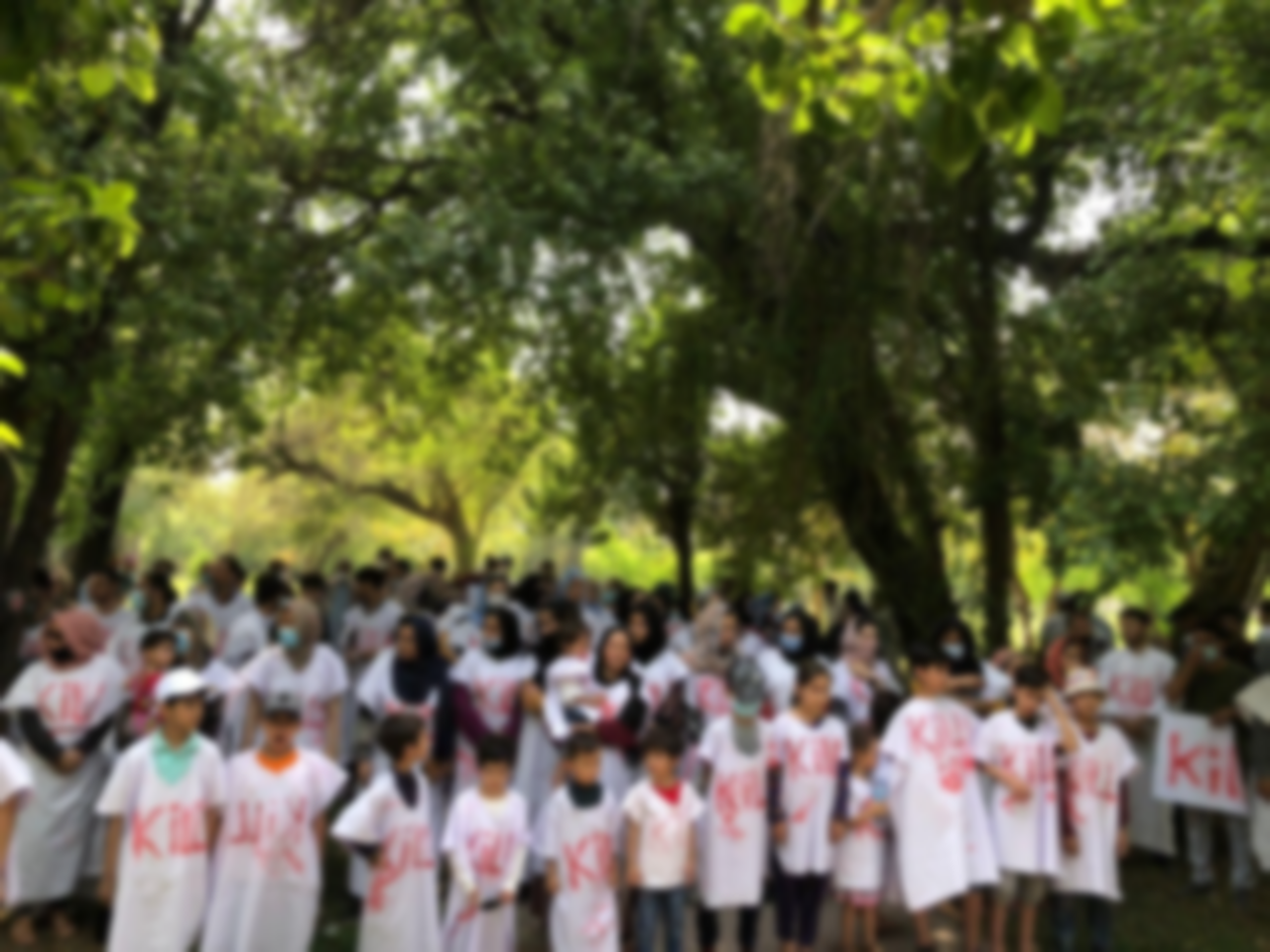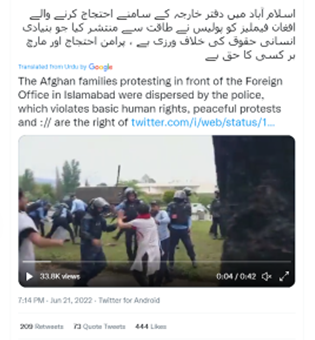Afghan Witness changed the name of the individual interviewed.
Before the Taliban’s return, civil rights activist and entrepreneur Sakhi, not his real name, was the owner of a thriving café that hosted poetry readings, political discussions and other events.
When Afghan Witness (AW) spoke to Sakhi previously, he told us that he struggled to see a future for himself in Kabul if the city’s libraries, cafés, and cultural spaces remained closed under the Taliban.
“Women will be imprisoned by the Taliban inside their houses, and the educated population will be deprived of technology,” he told us then, adding that it was like Afghanistan had gone back half a century overnight.
That was January 2022, and when we speak to Sakhi again it’s June 2022. He’s no longer in Afghanistan, but this time is talking to us from Pakistan.
“Each day, the risks [in Afghanistan] were getting more extensive than the day before,” Sakhi explains. “The Taliban started detaining my friends – people that were on the frontlines of civil protests, and those who believed in democracy and democratic values.”
Sakhi tells AW that some of his activist friends were tortured by the Taliban and forced to give up information on other activists. Among them was Parwana Ibrahimkhel, he alleges, whose disappearance – along with several other female activists – attracted global media attention, though the Taliban consistently denied arresting and detaining the women. The United Nations (UN) announced the release of the four women activists several weeks after they went missing.
Sakhi goes on to explain that he quickly made plans to leave Afghanistan after hearing this.
Life in Pakistan
When Sakhi arrived in Pakistan, his problems were far from over, however.
After the Taliban takeover in August 2021, hundreds of thousands of Afghans fled to neighbouring countries. According to figures from the European Union Agency for Asylum (EUAA), as of January 2022, there were approximately 3 million Afghans living in Pakistan, and it is estimated that around 775,000 of these are undocumented.
Following the takeover, Pakistan moved to tighten its border controls. A senior official at Pakistan’s Ministry of Interior – who was tasked with handling refugees – told CBS News last month that the country had “restricted visas and the border, but despite this, around 250,000 Afghans crossed into Pakistan [after the takeover]”.
Sakhi tells AW that Afghans seeking asylum in Pakistan are facing issues such as poor communication links with foreign embassies, and delays with cases being processed by the United Nations High Commissioner for Refugees (UNHCR). Similar issues have been reported by the media and other Afghans seeking asylum in the country.
“Unfortunately, there is no way we can leave Pakistan… we are stuck here,” Sakhi says.
In June, a UNHCR Pakistan spokesperson replied to concerns over the situation Afghans are facing in Pakistan, stating that the organisation is “currently discussing with the government of Pakistan the way forward on registration and documentation of asylum-seekers, predominantly from Afghanistan.”
“Kill us or rescue us”
 Families wearing makeshift white shirts stating “Kill” in red paint – to highlight their lack of rights. Image sent to AW, blurred to protect identities.
Families wearing makeshift white shirts stating “Kill” in red paint – to highlight their lack of rights. Image sent to AW, blurred to protect identities.
Last month, a Pakistan Interior Ministry official told CBS News that around 450 Afghan families – around 1,500 people in total – are living in a park in Islamabad. According to the report, many of the families are living in makeshift shelters, and most are relatively young and well-educated.
For months, the families – including their small children – have been protesting to demand their legal status, with many seeking onward passage to European nations. Reports detail how demonstrators have even carried mock coffins while wearing white shirts with messages in red paint demanding officials “kill us or rescue us”.
Sakhi says he has been a part of a sit-in strike of over one thousand refugees from Afghanistan.
“They are from different backgrounds: teachers, activists, journalists, prosecutors, religious minorities and other vulnerable groups of the Afghan society,” he says, adding that none of their asylum cases have been processed yet.
Since the takeover, many who worked for the former government or with international organisations have left Afghanistan due to fears over their safety. Despite the Taliban’s claim of a general amnesty, rights groups and journalists have highlighted mounting evidence of reprisal arrests and killings.
Sakhi says the group’s sit-in strike has lasted “for over 70 days”, and that the protesters are demanding their “right to asylum and protection” while trying to draw the attention of the international community. Similar protests have been taking place for months: in April, Afghan refugees held a demonstration in front of the UNHCR in Islamabad over delays in the processing of their cases. In November 2021, Afghan asylum seekers in Indonesia also held similar sit-in strikes and protests.
Sakhi tells AW that some of the protests have been disrupted by authorities: “the Pakistani police treated us violently during some of our protests and did not allow us to continue our movement,” he alleges. In recent weeks, videos have also been shared online showing protesters being met with force, though these are not verified by AW.
 Screenshot of video claiming protesters were dispersed by police
Screenshot of video claiming protesters were dispersed by police
Sakhi is uncertain about what his future holds, but one thing that concerns him is Afghanistan being forgotten, particularly since the Russian invasion of Ukraine.
“As I read the news, the world’s attention has drastically shifted towards Ukraine,” he says. “Foreign embassies do not pay attention to us.”


